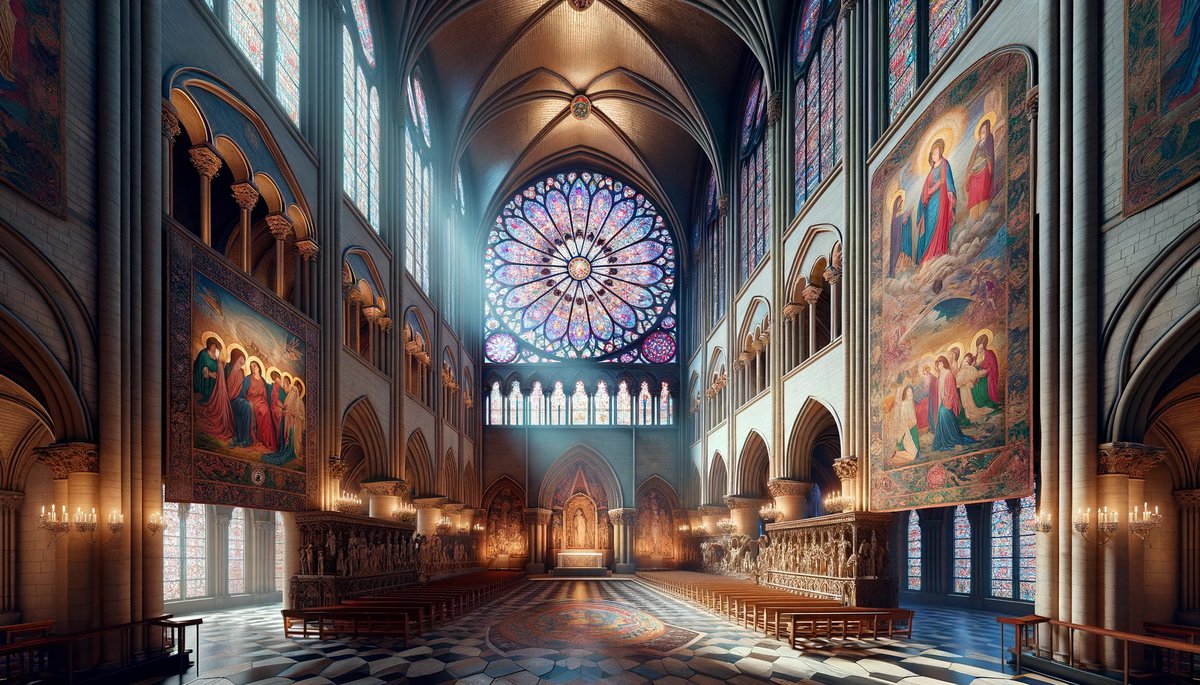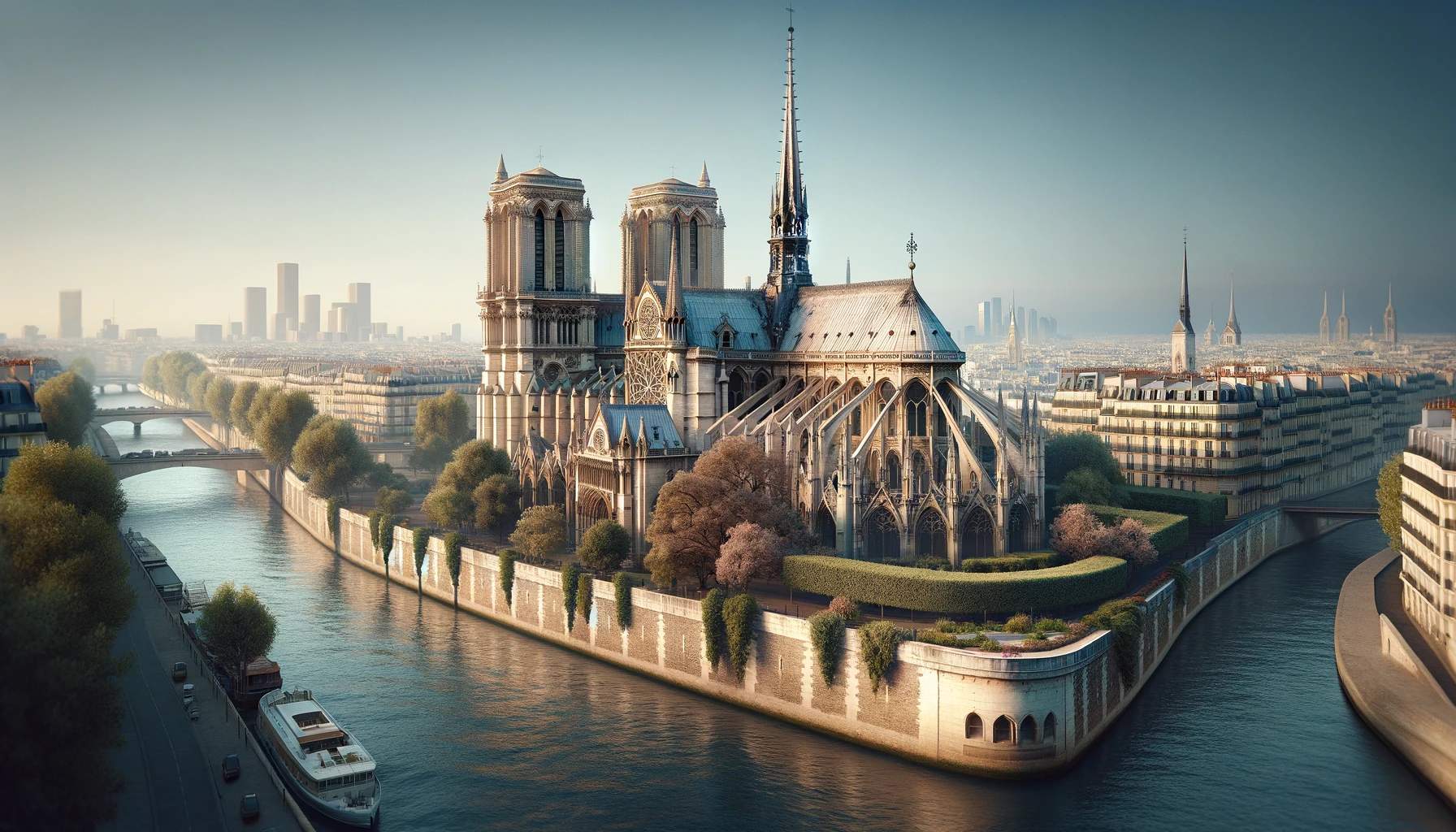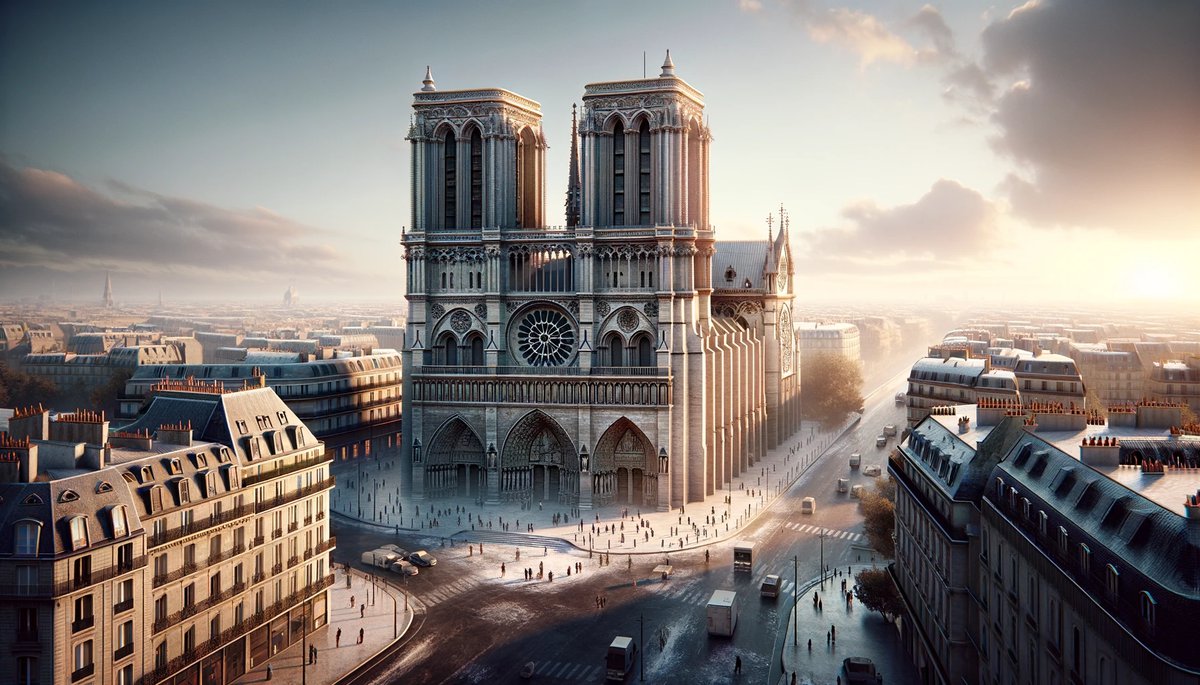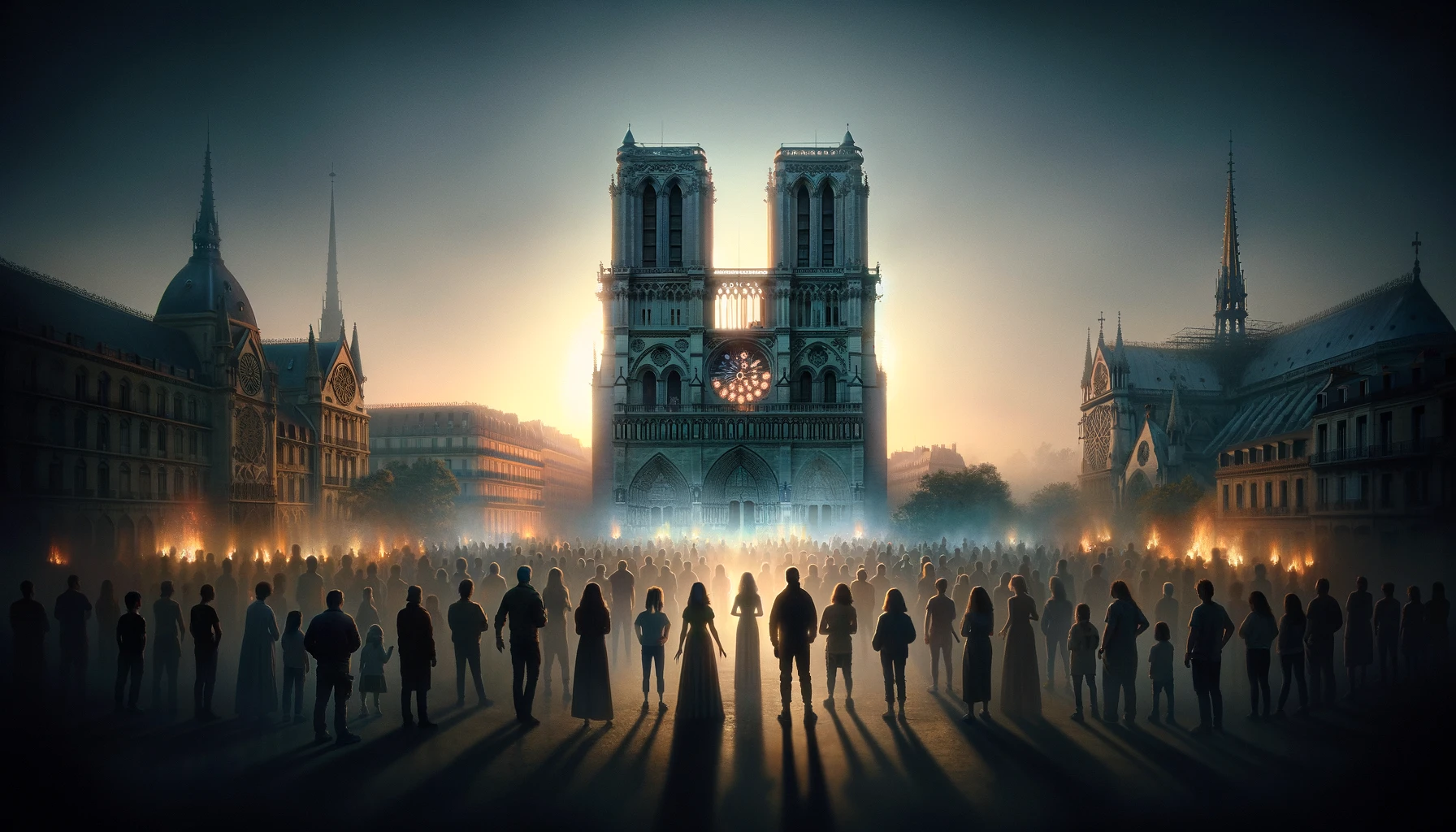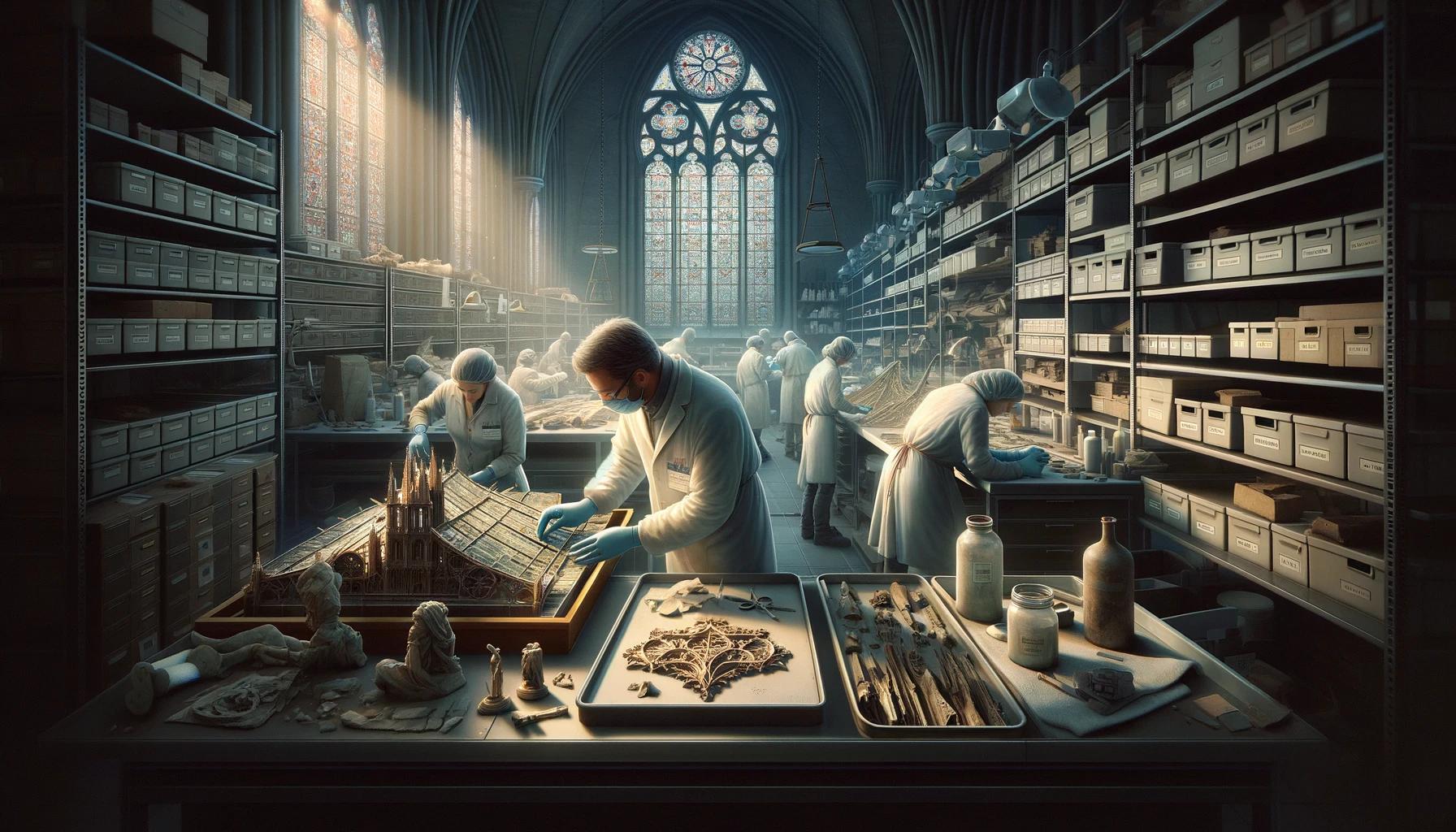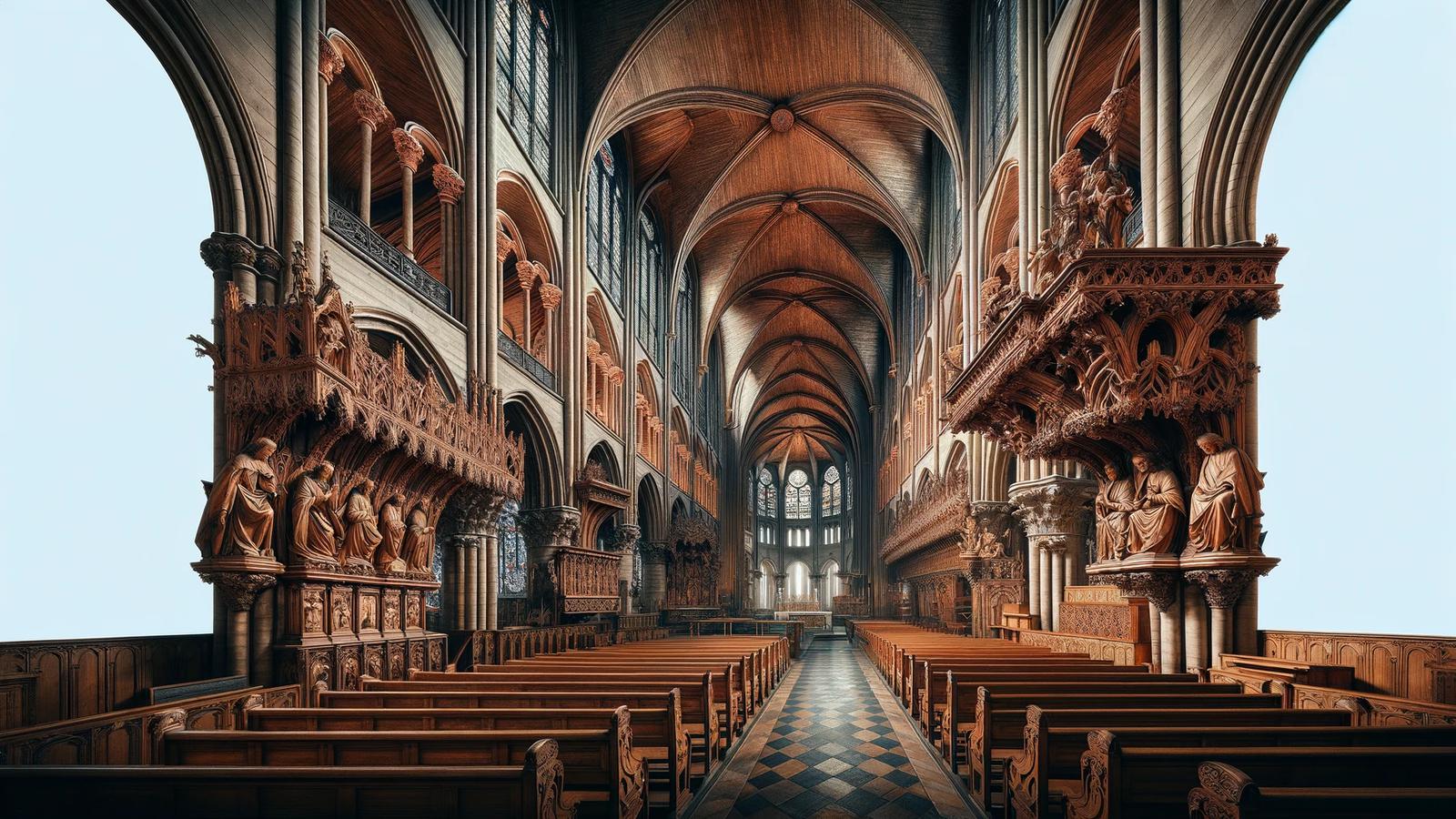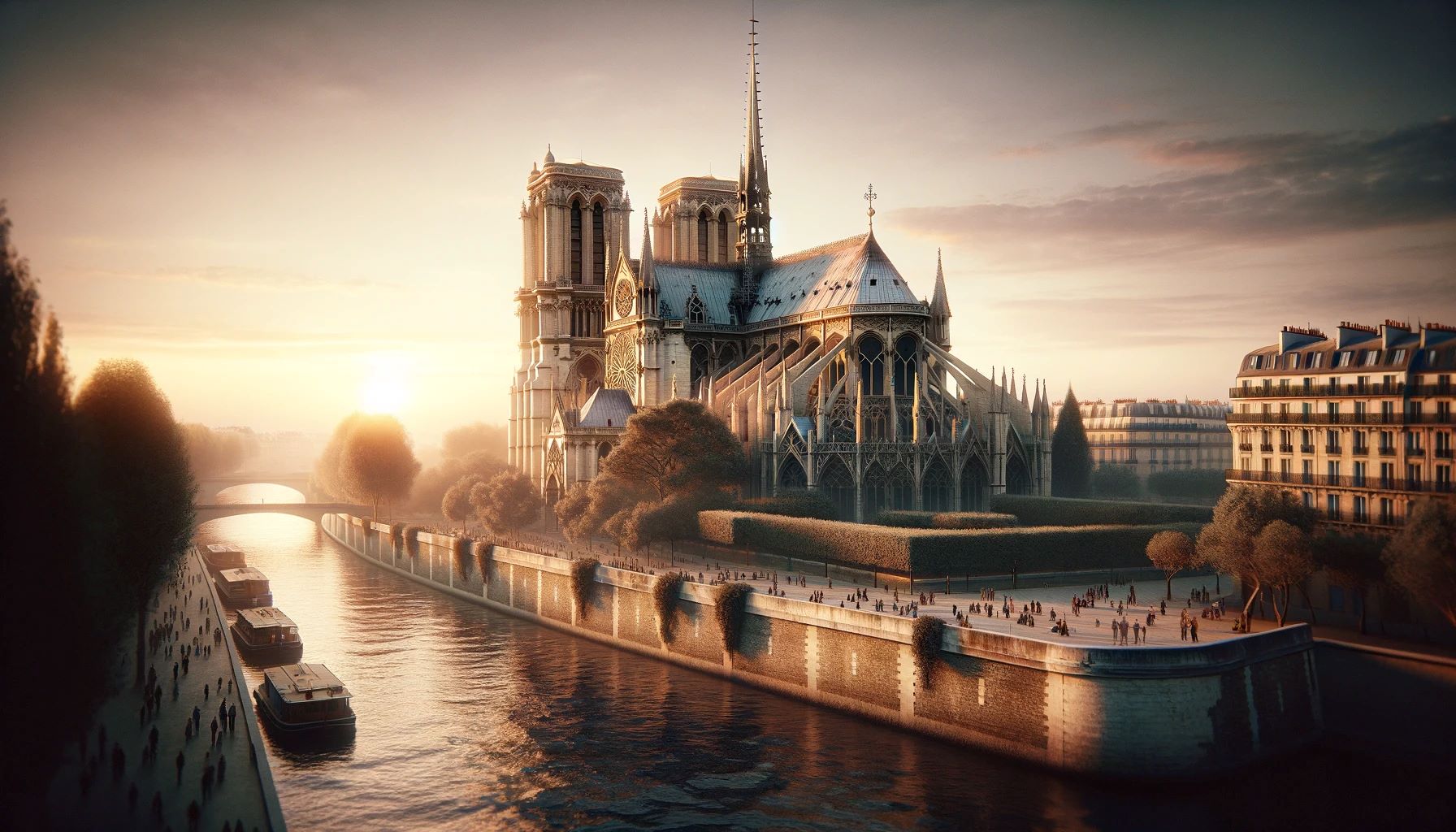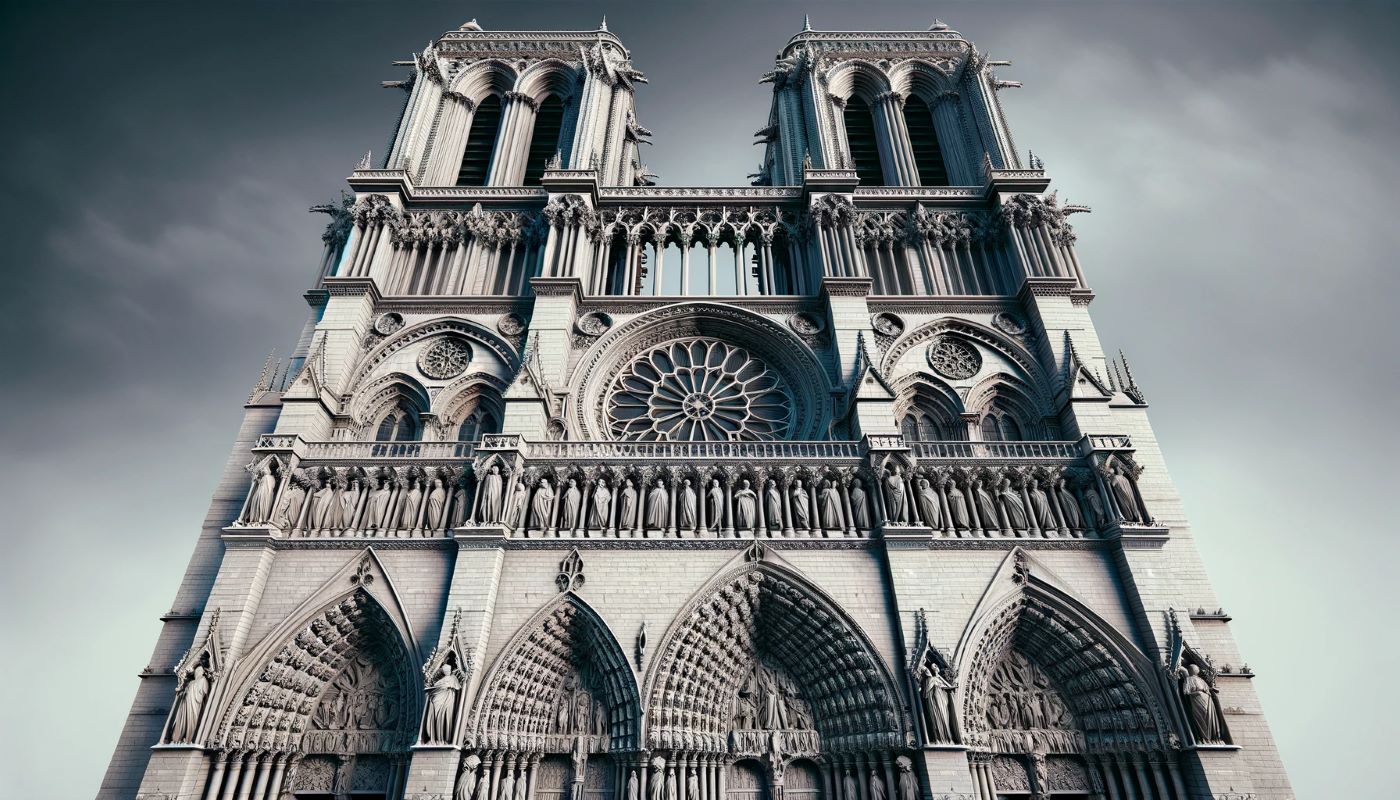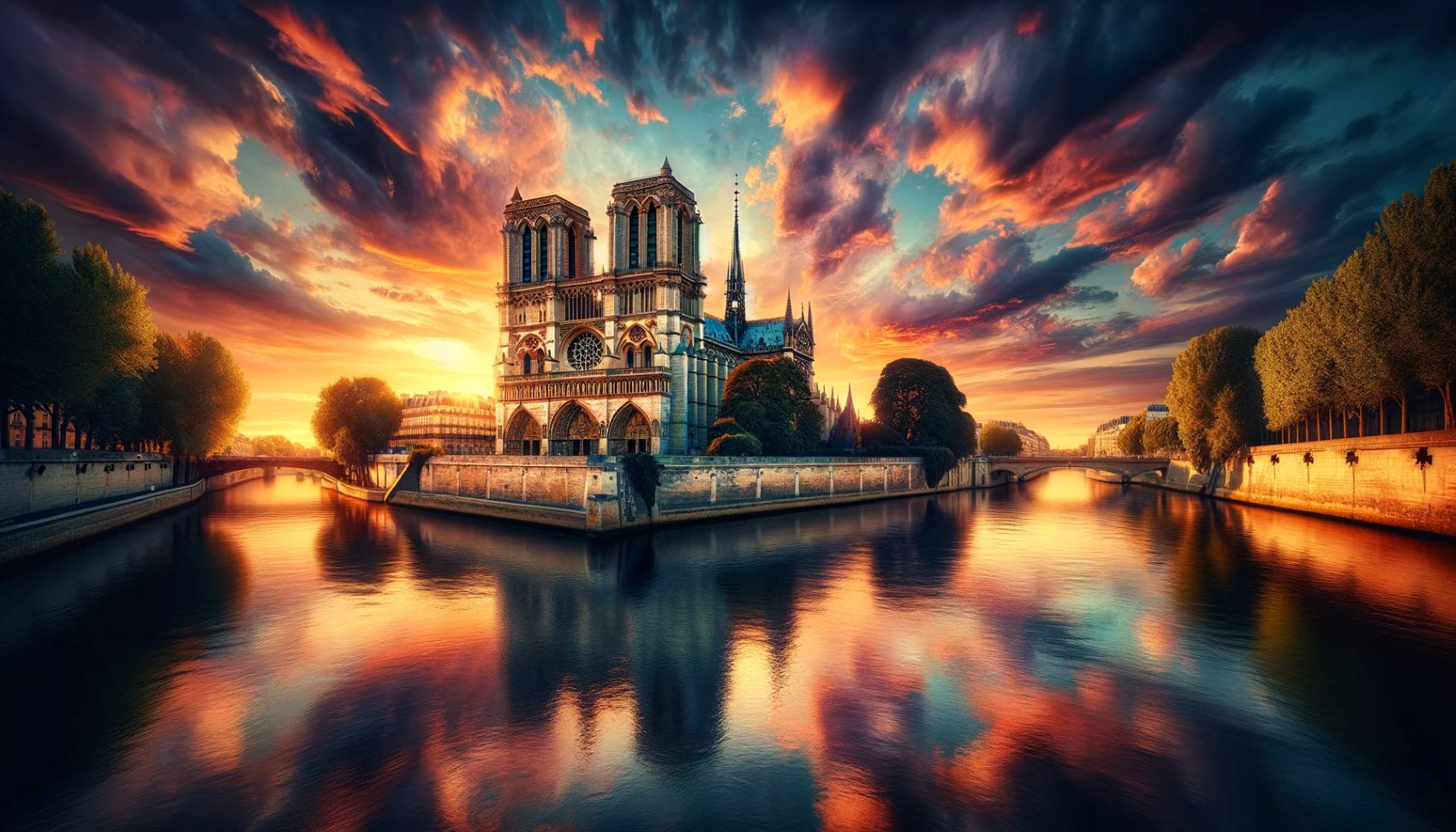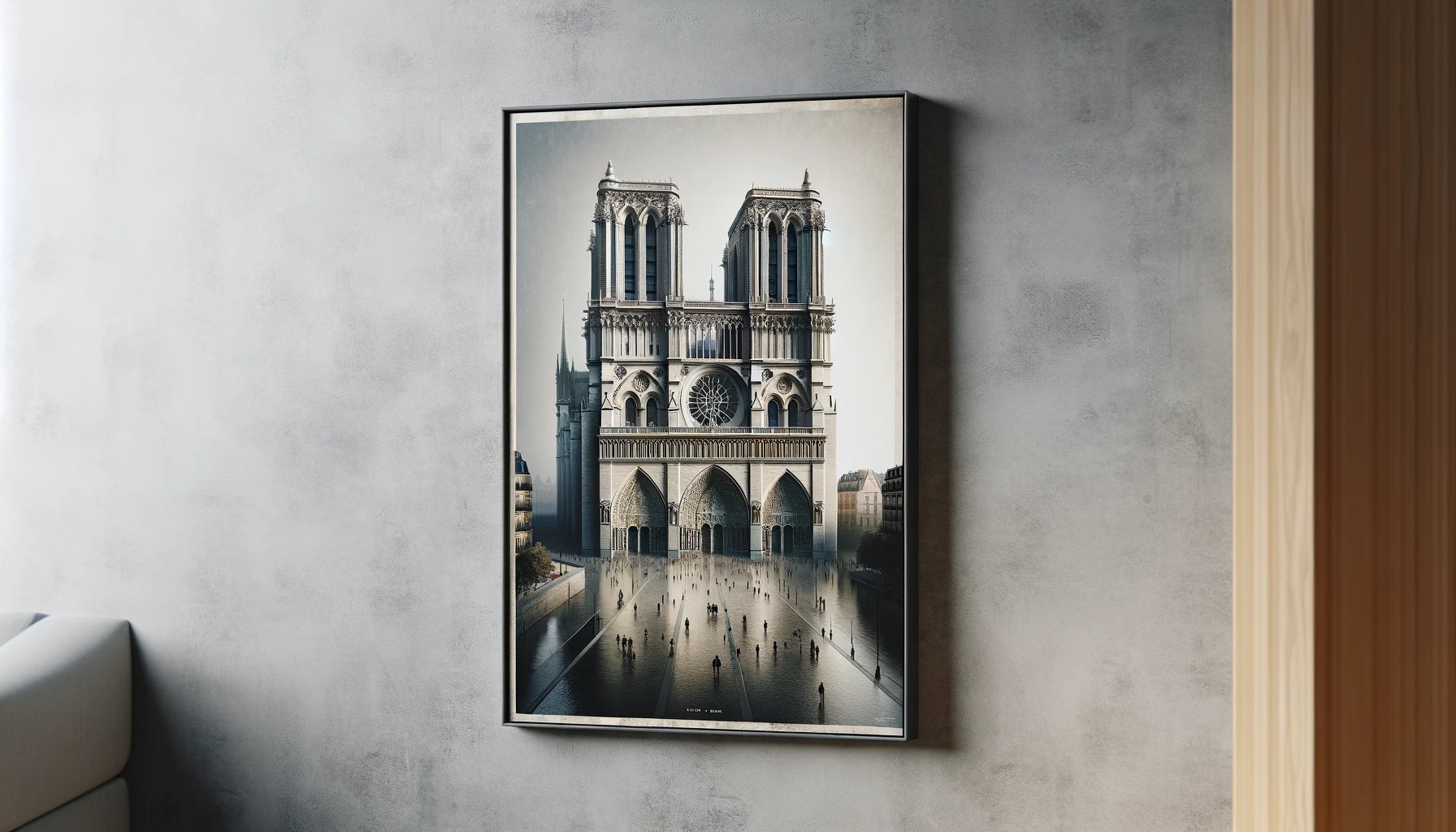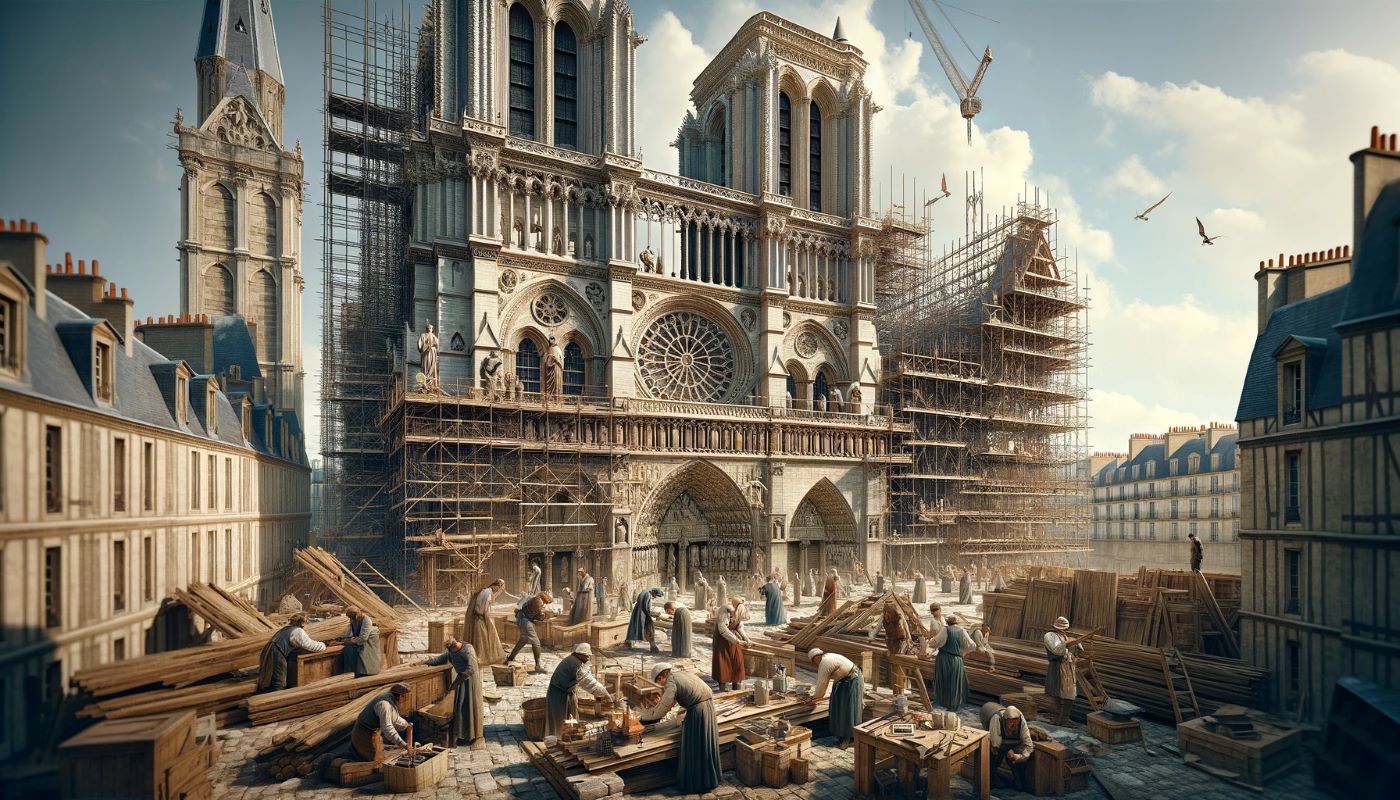Home>Arts and Culture>What Is Left Of Notre Dame Cathedral
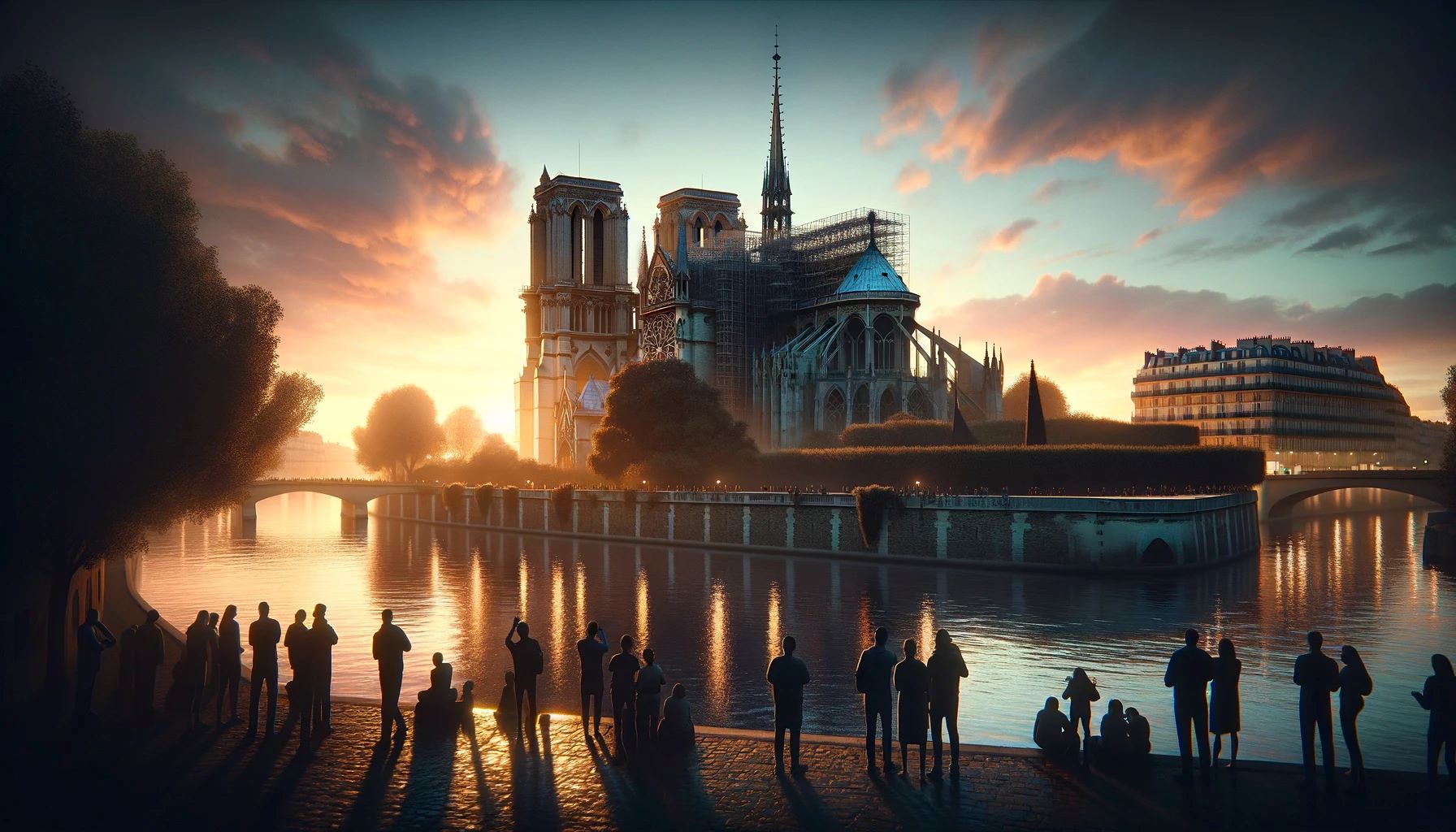

Arts and Culture
What Is Left Of Notre Dame Cathedral
Published: February 15, 2024
Jason DeRose, Managing Editor at Christian.net, uses his expertise in religion and journalism to deepen understanding of faith's societal impacts. His editorial leadership, coupled with a strong academic background, enriches the platform’s diverse content, earning him recognition in both journalism and religious circles.
Discover the rich history and cultural significance of what remains of the iconic Notre Dame Cathedral in this insightful exploration of arts and culture. Uncover the enduring legacy of this architectural masterpiece and its impact on the world.
(Many of the links in this article redirect to a specific reviewed product. Your purchase of these products through affiliate links helps to generate commission for Christian.net, at no extra cost. Learn more)
Table of Contents
Introduction
The Notre Dame Cathedral, a timeless symbol of Paris, has long stood as a testament to the ingenuity and artistry of humanity. Its majestic spire and intricate Gothic architecture have drawn millions of visitors from around the world, each seeking to bask in the grandeur of this iconic structure. However, the devastating fire that engulfed Notre Dame on April 15, 2019, left the world in shock and mourning. The flames that ravaged the cathedral not only consumed its physical form but also stirred a collective sense of loss and disbelief.
For centuries, Notre Dame has been a focal point of French history and culture, witnessing the rise and fall of empires, revolutions, and the enduring spirit of the people. Its walls have echoed with the prayers of countless worshippers, and its halls have hosted coronations, weddings, and solemn ceremonies. The cathedral's significance transcends mere architectural splendor; it embodies the resilience and creativity of humanity across the ages.
The fire that tore through Notre Dame Cathedral was a tragic reminder of the fragility of our cultural heritage. As the world watched in horror, the flames threatened to erase centuries of history and artistry in a matter of hours. However, amidst the devastation, a glimmer of hope emerged as people rallied together to salvage what remained and chart a path towards restoration.
In the wake of this catastrophic event, the fate of Notre Dame Cathedral has become a focal point of global attention. The outpouring of support and generosity from individuals, organizations, and governments reflects the universal significance of this architectural marvel. The determination to rebuild and restore Notre Dame symbolizes a collective commitment to preserving our shared cultural legacy for future generations.
As we delve into the history, destruction, and restoration efforts surrounding Notre Dame Cathedral, it becomes evident that this iconic landmark holds a profound place in the hearts of people worldwide. The story of Notre Dame is not merely one of loss and devastation but also one of resilience, unity, and the enduring power of human creativity.
Read more: What Is The Purpose Of Notre Dame Cathedral
History of Notre Dame Cathedral
The history of Notre Dame Cathedral is a tapestry woven with the threads of time, artistry, and faith. Construction of this architectural masterpiece began in 1163, during the reign of King Louis VII, and it took nearly 200 years to complete. The cathedral's design reflects the transition from Romanesque to Gothic architecture, showcasing the innovative use of flying buttresses, rose windows, and intricate sculptures.
Notre Dame Cathedral stands on the Île de la Cité, a small island in the heart of Paris, surrounded by the flowing waters of the Seine River. Its location holds historical significance, as the site was once occupied by a Roman temple and later by a church commissioned by King Childebert I in the 6th century. The construction of Notre Dame marked a pivotal moment in the evolution of French architecture and culture, serving as a testament to the growing influence of Paris as a center of art, learning, and spirituality.
Over the centuries, Notre Dame bore witness to a myriad of historical events, including the coronation of Napoleon Bonaparte and the beatification of Joan of Arc. Its soaring spire and majestic bell towers became enduring symbols of Paris, inspiring artists, writers, and visitors from around the world. The cathedral's interior, adorned with stunning stained glass windows and intricate sculptures, offered a glimpse into the artistic and spiritual legacy of medieval Europe.
Notre Dame Cathedral weathered the storms of history, surviving wars, revolutions, and the passage of time. It stood as a beacon of hope and resilience, a testament to the enduring power of human creativity and faith. The cathedral's significance extended far beyond its architectural grandeur, embodying the collective memory and identity of the French people and the global community.
The rich history of Notre Dame Cathedral serves as a testament to the enduring legacy of human ingenuity and artistic expression. Its walls have echoed with the prayers of generations, and its spires have reached towards the heavens, inspiring awe and reverence. The story of Notre Dame Cathedral is a testament to the enduring power of cultural heritage, transcending time and space to unite people in appreciation of beauty, history, and the human spirit.
The Fire and Destruction
On the fateful evening of April 15, 2019, the world watched in disbelief as Notre Dame Cathedral, a symbol of resilience and architectural splendor, became engulfed in flames. The fire, which broke out during an extensive renovation project, quickly spread through the ancient wooden framework supporting the roof. As the blaze raged, the iconic spire of the cathedral, a defining feature of the Parisian skyline for centuries, succumbed to the inferno and collapsed in a heartbreaking display of destruction.
The devastating fire threatened to erase centuries of history and cultural significance in a matter of hours. The intense heat and billowing smoke posed a grave risk to the cathedral's priceless artifacts, including its renowned rose windows, historic organ, and religious relics. As the world watched the tragedy unfold, a collective sense of grief and disbelief permeated through global communities, transcending geographical boundaries and cultural differences.
Firefighters and emergency responders worked tirelessly to contain the inferno, risking their lives to salvage what remained of the cathedral's structure and invaluable treasures. Their heroic efforts, coupled with the outpouring of support from individuals and organizations worldwide, reflected the universal significance of Notre Dame Cathedral as a symbol of human achievement and cultural heritage.
The destruction wrought by the fire left an indelible mark on the collective consciousness, serving as a poignant reminder of the fragility of our shared cultural legacy. The images of Notre Dame engulfed in flames stirred emotions of sorrow and disbelief, prompting a global call to action to preserve and restore this architectural marvel for future generations.
The fire and its aftermath underscored the vulnerability of historical landmarks and the urgent need to implement robust measures for their protection and preservation. The loss of Notre Dame's spire and significant portions of its roof reverberated across the world, igniting a renewed appreciation for the irreplaceable value of cultural heritage and the imperative to safeguard it from unforeseen calamities.
As the flames were extinguished and the smoke cleared, the world grappled with the stark reality of the damage inflicted upon Notre Dame Cathedral. However, amidst the devastation, a glimmer of hope emerged as people rallied together to salvage what remained and chart a path towards restoration. The fire and destruction of Notre Dame Cathedral marked a pivotal moment in its history, igniting a global movement to ensure that this iconic symbol of human creativity and resilience would rise once again from the ashes.
Restoration Efforts
Following the devastating fire that ravaged Notre Dame Cathedral, a monumental effort to restore and rebuild this iconic landmark commenced with unwavering determination and global solidarity. The immediate aftermath of the fire saw an outpouring of support from individuals, corporations, and governments, reflecting the universal significance of Notre Dame as a symbol of human achievement and cultural heritage.
The French government, under the leadership of President Emmanuel Macron, swiftly pledged to undertake the restoration of Notre Dame Cathedral, vowing to return the revered monument to its former glory. In a stirring address to the nation, President Macron articulated a vision of reconstruction that honored the cathedral's rich history while embracing innovative techniques and materials to ensure its enduring resilience.
An international call for donations and expertise resonated across the globe, with contributions pouring in from philanthropists, businesses, and cultural institutions. The magnitude of the restoration endeavor necessitated a collaborative approach, drawing upon the expertise of architects, engineers, artisans, and conservationists to meticulously plan and execute the cathedral's reconstruction.
The painstaking task of assessing the structural integrity of Notre Dame commenced, with experts employing cutting-edge technology to survey the damage and formulate a comprehensive restoration strategy. Every aspect of the cathedral's reconstruction, from the preservation of its medieval stonework to the replication of its intricate sculptures and stained glass, demanded a meticulous and reverent approach.
The restoration efforts also encompassed the preservation of Notre Dame's invaluable artifacts and religious relics, many of which miraculously survived the inferno. Skilled conservators and art historians undertook the delicate task of cataloging, cleaning, and safeguarding these treasures, ensuring that they would endure as testaments to the cathedral's enduring legacy.
As the world watched with bated breath, the restoration of Notre Dame Cathedral emerged as a beacon of hope and resilience, symbolizing the collective commitment to preserving our shared cultural heritage. The reconstruction of this architectural marvel transcended mere physical restoration; it embodied a profound testament to the resilience, unity, and unwavering spirit of humanity in the face of adversity.
The restoration efforts for Notre Dame Cathedral stand as a testament to the enduring power of human creativity and determination. The global response to the tragedy underscored the universal significance of cultural heritage and the imperative to safeguard it for future generations. As the restoration journey unfolds, Notre Dame Cathedral serves as a poignant reminder of the indomitable human spirit and the timeless legacy of artistry, faith, and resilience.
What Remains of Notre Dame Cathedral
The aftermath of the devastating fire that engulfed Notre Dame Cathedral left a haunting tableau of destruction and resilience. While the inferno wrought extensive damage to the cathedral's roof and spire, what remains of Notre Dame Cathedral stands as a testament to its enduring spirit and historical significance.
The iconic facade of Notre Dame, adorned with its intricate rose windows and ornate sculptures, endured the ravages of the fire, offering a poignant reminder of the cathedral's timeless beauty and cultural resonance. The grandeur of its exterior, with its imposing towers and majestic portals, continues to evoke awe and reverence, serving as a tangible link to the cathedral's rich history and architectural splendor.
Inside the cathedral, the structural integrity of its medieval stonework and soaring vaulted ceilings persevered amidst the inferno, underscoring the resilience of Notre Dame's architectural craftsmanship. The intricate details of its interior, from the delicate tracery of its rose windows to the solemn grandeur of its nave, bear witness to the enduring legacy of Gothic artistry and spiritual devotion.
Notre Dame's historic organ, a masterpiece of musical engineering and artistic expression, survived the fire, offering a glimmer of hope amidst the devastation. The organ, with its intricate pipes and resonant tones, remains a symbol of the cathedral's enduring cultural and artistic heritage, poised to once again fill its hallowed halls with transcendent music.
The treasured relics and artifacts housed within Notre Dame Cathedral, including sacred artworks, religious statuary, and historic manuscripts, endured the fire's fury, emerging as poignant reminders of the cathedral's enduring legacy. These irreplaceable treasures, which have borne witness to centuries of history and faith, stand as testaments to the resilience and cultural significance of Notre Dame.
As the world grappled with the aftermath of the fire, the enduring elements of Notre Dame Cathedral offered solace and inspiration, reaffirming the cathedral's indelible place in the hearts of people worldwide. What remains of Notre Dame Cathedral serves as a poignant reminder of the resilience, artistry, and cultural significance that transcend the passage of time and the trials of history.
The enduring elements of Notre Dame Cathedral, from its majestic facade to its cherished relics, embody the cathedral's timeless legacy and enduring spirit. As restoration efforts continue, these remnants stand as symbols of hope and resilience, inspiring a global commitment to preserve and protect Notre Dame's cultural heritage for generations to come.
Read more: What Religion Is Notre Dame Cathedral?
Future Plans for Reconstruction
The future plans for the reconstruction of Notre Dame Cathedral stand as a testament to the unwavering commitment to restore this iconic landmark to its former glory while embracing innovative approaches to ensure its enduring resilience. The restoration efforts, propelled by a global outpouring of support and expertise, encompass a comprehensive vision that honors the cathedral's rich history and cultural significance.
At the forefront of the reconstruction plans is a meticulous assessment of the structural integrity of Notre Dame, leveraging state-of-the-art technology and the expertise of architects and engineers. This critical phase involves a thorough examination of the cathedral's stonework, vaulted ceilings, and foundational elements to inform a comprehensive restoration strategy that upholds the integrity of its medieval craftsmanship.
The reconstruction of Notre Dame Cathedral also entails a harmonious blend of traditional craftsmanship and cutting-edge techniques. Skilled artisans, stonemasons, and woodworkers are poised to meticulously replicate the cathedral's intricate sculptures, ornamental details, and wooden framework, paying homage to the timeless artistry that defines Notre Dame. Simultaneously, innovative approaches to structural reinforcement and fire-resistant materials will be integrated to fortify the cathedral against future perils.
A pivotal aspect of the reconstruction plans revolves around the restoration of Notre Dame's iconic spire, a defining feature of the Parisian skyline for centuries. The endeavor to recreate the spire with reverence to its original design while incorporating modern structural enhancements symbolizes the harmonious convergence of heritage preservation and technological innovation.
The preservation and restoration of Notre Dame's priceless artifacts and religious relics constitute an integral facet of the reconstruction plans. Skilled conservators and art historians are meticulously tending to the cathedral's irreplaceable treasures, employing specialized techniques to ensure their longevity and cultural significance for generations to come.
The future plans for the reconstruction of Notre Dame Cathedral embody a collective commitment to safeguarding our shared cultural heritage. The restoration journey serves as a testament to the enduring power of human creativity, resilience, and unity in the face of adversity. As the world unites in support of Notre Dame's rebirth, the cathedral's reconstruction stands as a poignant testament to the timeless legacy of artistry, faith, and the indomitable spirit of humanity.
The restoration of Notre Dame Cathedral transcends mere physical reconstruction; it symbolizes a profound testament to the resilience, unity, and unwavering spirit of humanity in the face of adversity. The global response to the tragedy underscores the universal significance of cultural heritage and the imperative to safeguard it for future generations. As the restoration journey unfolds, Notre Dame Cathedral serves as a poignant reminder of the indomitable human spirit and the timeless legacy of artistry, faith, and resilience.
Conclusion
The saga of Notre Dame Cathedral, from its storied history to the devastating fire and the ongoing restoration efforts, encapsulates the enduring resilience and cultural significance of this iconic landmark. The cathedral's enduring legacy transcends mere architectural grandeur, embodying the collective memory and identity of the French people and the global community. As the world grappled with the aftermath of the fire, a profound sense of loss and disbelief permeated through global communities, underscoring the universal significance of Notre Dame as a symbol of human achievement and cultural heritage.
The restoration journey of Notre Dame Cathedral stands as a testament to the unwavering commitment to preserve and protect our shared cultural legacy. The global outpouring of support and expertise, coupled with the harmonious convergence of traditional craftsmanship and innovative techniques, exemplifies the collective determination to ensure that Notre Dame rises once again from the ashes. The reconstruction plans, meticulously crafted to honor the cathedral's rich history while embracing modern advancements, symbolize a harmonious blend of heritage preservation and technological innovation.
As the restoration efforts continue to unfold, Notre Dame Cathedral serves as a poignant reminder of the resilience, artistry, and cultural significance that transcend the passage of time and the trials of history. The enduring elements of the cathedral, from its majestic facade to its cherished relics, embody the cathedral's timeless legacy and enduring spirit. The reconstruction of Notre Dame stands as a testament to the enduring power of human creativity, resilience, and unity in the face of adversity.
The global response to the tragedy underscores the universal significance of cultural heritage and the imperative to safeguard it for future generations. The restoration of Notre Dame Cathedral transcends mere physical reconstruction; it symbolizes a profound testament to the resilience, unity, and unwavering spirit of humanity in the face of adversity. As the restoration journey unfolds, Notre Dame Cathedral serves as a poignant reminder of the indomitable human spirit and the timeless legacy of artistry, faith, and resilience.
